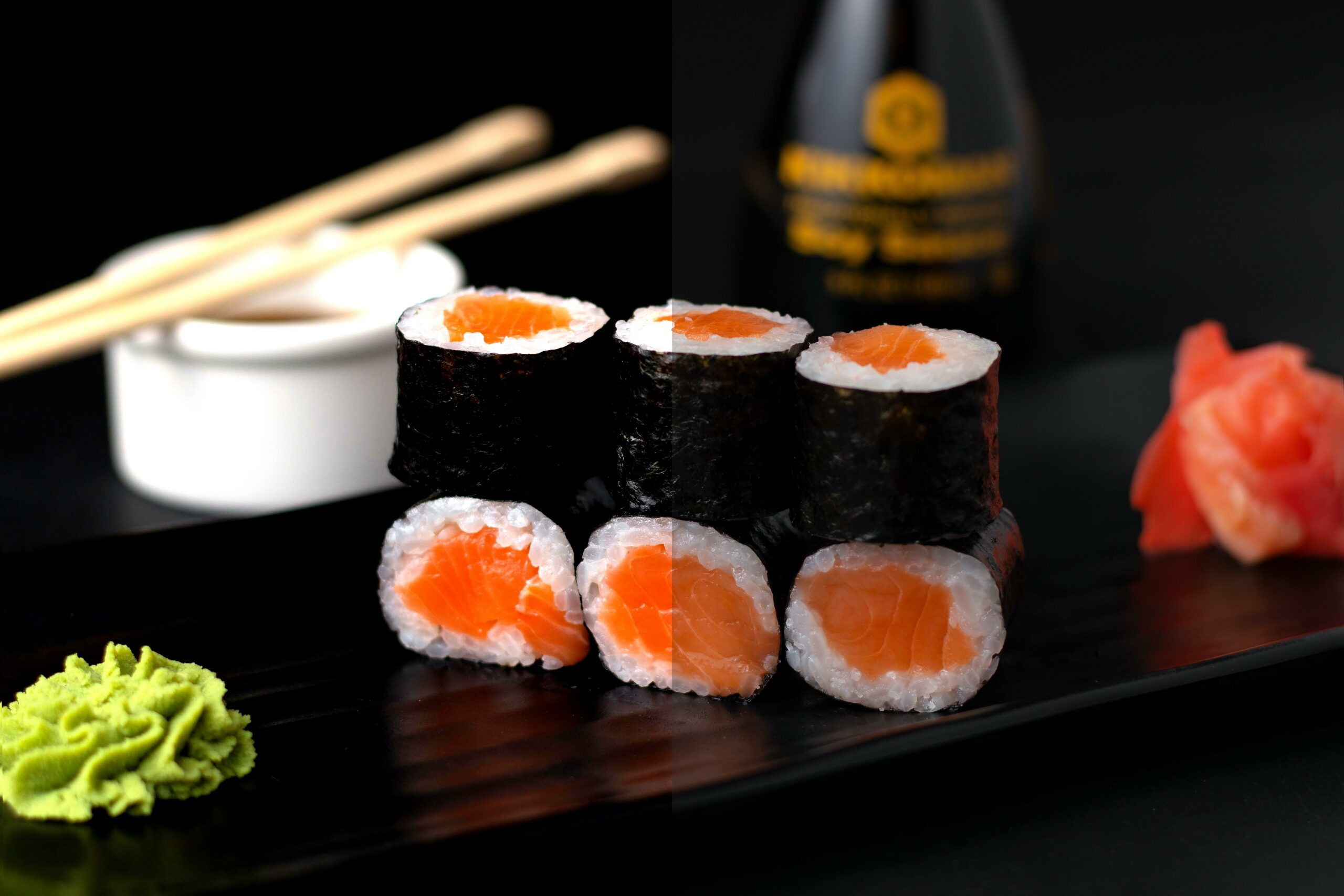Sushi rolls are more than just a meal, they are a work of art. The delicate balance of flavors, the intricate combination of textures, and the meticulous techniques used to craft each roll are what make sushi truly mesmerizing. In this article, we will delve into the captivating world of sushi roll crafting, exploring the diverse range of ingredients and unveiling the expert techniques that transform ordinary ingredients into extraordinary culinary creations. So buckle up and get ready to embark on a journey through the art of sushi roll crafting, as we uncover the secrets behind mastering ingredients and techniques that will elevate your sushi game to new heights.
Sushi Roll Ingredients and Techniques
Welcome to the world of sushi roll crafting! Whether you’re a seasoned chef or a curious home cook, mastering the art of sushi roll making is within your grasp. In this article, we’ll delve into the key ingredients and techniques that will help you create beautiful and delicious sushi rolls that will impress even the most discerning sushi connoisseur.
The Essential Ingredients
To begin your sushi roll journey, you’ll need a few key ingredients. The first is nori, which is dried seaweed. Nori provides the structural integrity and adds a delightful umami flavor to your sushi rolls. It’s easily accessible and can be found in most Asian grocery stores.
The next vital component is sushi rice. This short-grain rice has just the right stickiness to hold your sushi rolls together. Cook it to perfection using a rice cooker or the stovetop method. Remember to season the rice with a mixture of rice vinegar, sugar, and salt to give it that signature sushi taste.
Unleashing Your Creativity with Fillings
But what about the filling? Here’s where your culinary creativity can shine. You can use a variety of ingredients to elevate your sushi rolls and cater to your taste preferences. From fresh fish and shellfish to vibrant vegetables and creamy avocado, the choices are endless.
Make sure to cut your filling ingredients into small, bite-sized pieces and slice the vegetables thinly for easy rolling. This will ensure that each bite of your sushi roll is perfectly balanced in terms of flavor and texture.
Quote: “The combination of vibrant fillings in sushi rolls allows for endless creative possibilities.”
The Art of Sushi Roll Crafting
Now that we have our ingredients prepared, let’s dive into the techniques that will turn your sushi rolls into miniature masterpieces. Rolling the sushi may seem daunting at first, but with a trusty sushi mat as your guide, it becomes a breeze. Start from the bottom, gently tucking the ingredients into the nori and rolling it up. Be careful not to include the mat or towel in the roll itself.
Quote: “Mastering the art of sushi roll crafting is like dancing with delicate ingredients, ensuring they come together harmoniously.”
Exploring Sushi Roll Types
Sushi rolls come in various forms and sizes. You have the elegant hosomaki or thin rolls, perfect for a delicate bite. Then there’s the chumaki, or medium rolls, which offer a more substantial eating experience. And finally, we have the futomaki, or thick rolls, which can be packed with a multitude of fillings, guaranteeing a flavor explosion in every bite.
Quote: “Every sushi roll type tells a unique culinary story, reflecting the vastness of Japanese gastronomy.”
Nutritional Considerations
While sushi is undoubtedly delicious, it’s important to be mindful of its nutritional aspects. Sushi rice, being high in refined carbs, should be enjoyed in moderation. However, fear not! You can opt for healthier alternatives like brown rice or even experiment with other grains to give your sushi rolls a nutritious twist.
The Importance of the Right Rice
To achieve sushi roll perfection, choosing the right rice is crucial. Basmati or risotto rice, with their long grains and distinct textures, are not suitable for rolling sushi. Instead, opt for sushi rice, which has the ideal balance of stickiness and flavor.
Quote: “Choosing the right rice is the foundation of a successful sushi roll; it’s like selecting the perfect canvas for your culinary masterpiece.”
Mastering the Quantity
If you’re wondering just how many sushi rolls you can make with a certain amount of rice, here’s a handy guideline. Approximately 3 rice cooker cups of uncooked rice can yield around 10 hosomaki rolls. Adjust the quantity based on the number of rolls you plan to make, ensuring you have enough to feed your hungry guests.
A Final Note
Crafting sushi rolls is a culinary art form that allows you to explore flavors, textures, and techniques. By understanding the key ingredients and mastering the essential techniques, you will unlock a world of possibilities in your sushi roll creations. So, grab your nori, sushi rice, and favorite fillings, and embark on a delightful journey of sushi roll crafting.
Quote: “With a dash of creativity, a sprinkle of technique, and a rolling mat in hand, you’re ready to unlock the art of sushi roll crafting.”
Sushi rolls have long been a staple in Japanese cuisine, but did you know there are fascinating facts about sushi rolls that will leave you craving for more? Dive into the intriguing world of sushi rolls and discover the secrets behind their creation, the different types of fillings and toppings, and the unique techniques used to roll them. If you’re ready to embark on a culinary adventure and uncover the enticing facts about sushi rolls, click here: facts about sushi rolls. Prepare to be amazed by the rich flavors and exquisite artistry that go into making these delectable bites. Don’t miss out on this opportunity to broaden your knowledge and indulge your taste buds – click the link and let the sushi journey begin!
FAQ
Q: What are the essential ingredients for making sushi rolls?
A: To make sushi rolls, you will need nori (dried seaweed), sushi rice, and filling ingredients.
Q: How do you cook sushi rice?
A: Sushi rice can be cooked in a rice cooker or on the stovetop.
Q: How do you roll a sushi roll?
A: To roll a sushi roll, start from the bottom using a mat as a guide, being careful not to roll the mat or towel into the sushi.
Q: How should the filling ingredients be prepared?
A: Cut the filling ingredients into small pieces and slice vegetables thinly before adding them to the sushi roll.
Q: Are there different types of sushi rolls?
A: Yes, there are several types of sushi rolls, including hosomaki (thin rolls), chumaki (medium rolls), and futomaki (thick rolls).
- China II Review: Delicious Food & Speedy Service - April 17, 2025
- Understand Virginia’s Flag: History & Debate - April 17, 2025
- Explore Long Island’s Map: Unique Regions & Insights - April 17, 2025
















